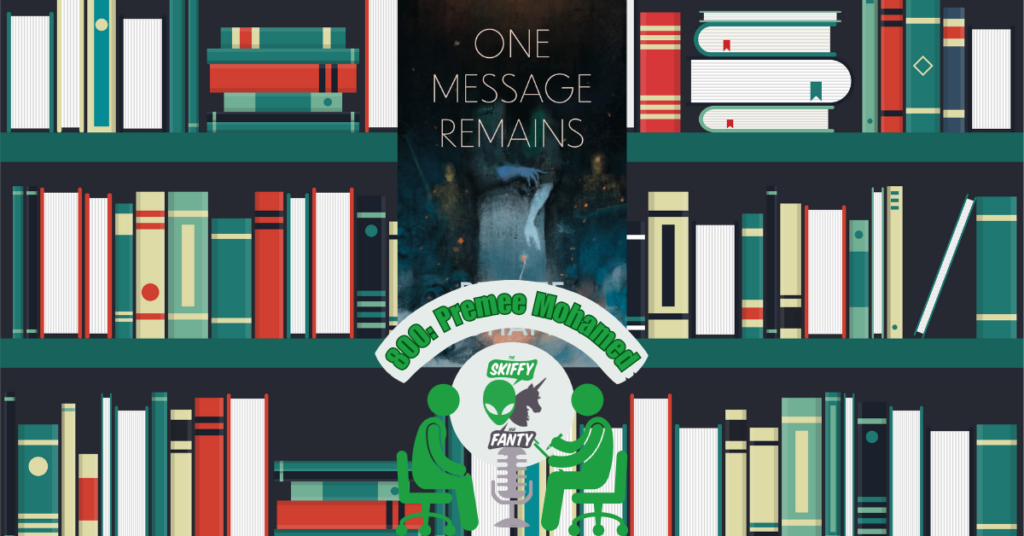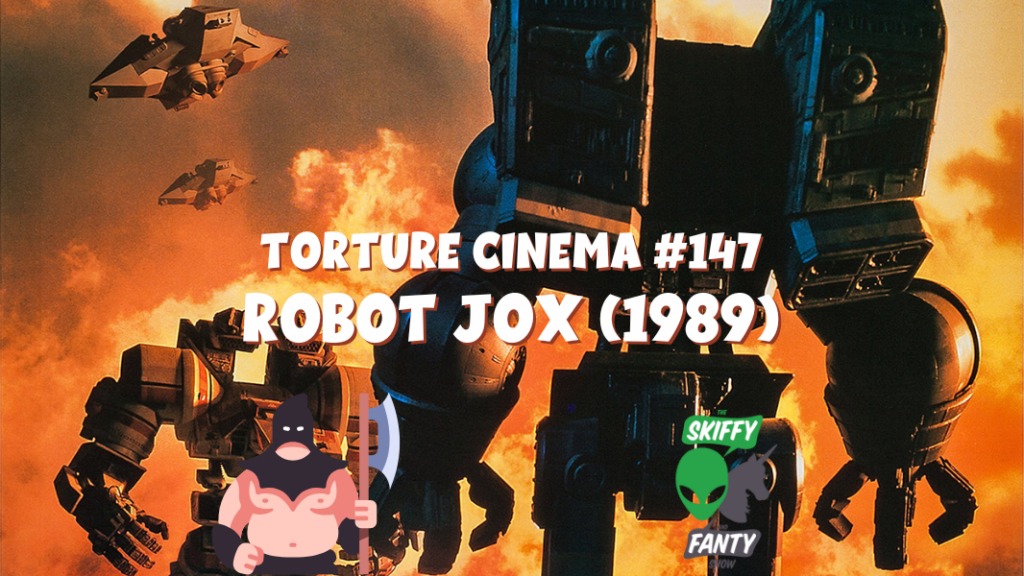Book Review: We Lived on the Horizon, by Erika Swyler

An artisanal bio-prosthetist and her personal house AI become aware of growing data gaps in a post-cataclysmic city run by an artificial intelligence system, precipitated by the murder of an acquaintance and the subsequent erasure of facts about the victim and his death.
801. Mortuary Science w/ Amanda Downum — SF at School

https://media.blubrry.com/skiffyandfanty/dts.podtrac.com/redirect.mp3/archive.org/download/sand-f-801-mortuary-science/SandF_801_MortuaryScience.mp3Podcast: Play in new window | DownloadSubscribe: Apple Podcasts | Spotify | Android | Email | TuneIn | Deezer | RSSBear attacks, tough conversations, and skeletons, oh my! Shaun Duke and Daniel Haeusser are joined by Amanda Downum for a riveting and educational conversation about mortuary science! Together, they explore what morticians do and the complex skills they need, the social dimensions of death, necromancy, and much more! Thanks for listening. We hope you enjoy the episode!
800. Premee Mohamed (a.k.a. The Cosmic Beetle) — One Message Remains

https://media.blubrry.com/skiffyandfanty/dts.podtrac.com/redirect.mp3/archive.org/download/sand-f-800-premee-mohamed/SandF_800_PremeeMohamed.mp3Podcast: Play in new window | DownloadSubscribe: Apple Podcasts | Spotify | Android | Email | TuneIn | Deezer | RSSPossessions, legacies of violence, and shared worlds, oh my! Shaun Duke and Paul Weimer are joined by Premee Mohamed to discuss One Message Remains! Together, they explore the task of writing interconnected short fiction, the complexities of people within empires, violence and the human will to destroy, and much more. Thanks for listening. We hope you enjoy the episode!
2024 Reflections: A Few of Our Favorite Things

For our last post of 2024, each of the Skiffy & Fanty blog contributors has provided some reflections on some of our favorite things that genre gave us this last year. Please let us know about yours, and we’ll see you again in 2025! TRISHInevitably, once this goes live, I’ll think of other things I should have mentioned. All I can do now is apologize in advance to whatever I’ve neglected. Nonfiction: A City on Mars by Kelly Weinersmith and Zach Weinersmith, which discusses the feasibility (or rather, not) of settling Mars with current or near-future technology. Unfortunately, there are great challenges to be overcome, which make this a distant possibility, but the Weinersmiths leaven this depressing conclusion throughout with illustrations and humor. RPGs: I really enjoyed playing Star Trek Adventures and Stargate earlier this year, but they’ve been on hiatus for months. My favorite new game is a role-playing game campaign using adapted rules from Cold City: Hot War (https://handiwork.games/cold-city-hot-war) but set in London a few months after the Martian invasion in H.G. Wells’ War of the Worlds. The campaign is called Thunderchild, and everyone in the party has the overt agenda of working for an agency seeking to gather up Martian technology and keep it out of the hands of the Wrong People, but each of us has a hidden agenda. I’m playing the daughter of an industrialist and secret suffragette (well, obviously a suffragette, but I’ve concealed how radical my character is); we also have a royal nth-cousin who’s angling toward the throne, a journalist who’s secretly a spy, and a spy who’s secretly an anarchist. I met the GM and players via the Discord for The Good Friends of Jackson Elias, and I’m having a blast with the yes-and cooperative play (well, the Players are cooperating to create a good game/story, although the Characters are at odds). But since none of my dear readers can check out this game, instead I recommend checking out Jason Thompson’s Dreamlands, which can be as imaginative as you want to make it. Podcasts: The happiest surprise this year has been Season 11 of Mike Duncan’s “Revolutions” podcast. A factual history podcast until now (Duncan was famed for his The History of Rome podcast before Revolutions), it has become a future-history recounting of the Martian Revolution. He’s taking all the dreadful lessons provided by past real revolutions, looking at current economic and political trends, and using them to weave a sardonic yet convincing and compelling narrative of how things might go in the future. (Subtle salutes to other Martian fiction writers include naming a corporate division after Kim Stanley Robinson.) Videos: I haven’t watched many movies this year, mainly assigned viewing for Skiffy and Fanty shows and Hugo voting. I enjoyed individual episodes of “First Level” and “What If?” but found each series a bit spotty. I loved “Agatha All Along” except that I found the final episode a bit disturbing, since I didn’t think she did nearly enough to deserve what happened at the end. Science Fiction Novels: Shockingly, I don’t seem to have read much pure science fiction, without any fantasy elements, in the last year. I’m making an effort to include more in my 2025 selections. I thought Some Desperate Glory, by Emily Tesh, was absolutely great; I’d passed it up in the library because it looked like fairly standard Chosen One milSF, but gave it another chance when it was nominated for a Hugo, and wow, I’m glad I did! The initially arrogant main character goes through a huge amount of learning and growth, and the shifts in reality are mind-blowing. It deserved its win for Best Novel. I also really enjoyed what eventually became a Lodestar nominee, Liberty’s Daughter by Naomi Kritzer; it stirred a lot of interesting thoughts and comparisons, which I wrote up for Skiffy and Fanty. Science Fantasy Novels: I adored Andrea Hairston’s Archangels of Funk; it’s the third in a series, but you don’t need to have read the previous books to dive into this one. As I said in my review here, “This is a fantastic near-future book that combines magic and hopepunk with vibrant, joyful optimism, where a diverse community works together to survive and thrive as an independent cooperative amid an increasingly corpocratic world.”I also thought Lost Ark Dreaming by Suyi Davies Okungbowa was really good. It seemed at first to be pure dystopian fiction (civilization has retreated into partly submerged towers), and was good at that and at characterization, but fantastic elements eventually made their presence known. Fantasy: Equally great in very different ways were The Naming Song, by Jedediah Berry, Someone You Can Build a Nest In, by John Wiswell, and To Shape a Dragon’s Breath, by Moniquill Blackgoose (which won the 2024 Lodestar). Each book has a strong focus on identity, and who gets to define that, and how and whether a recipient of labels can accept that, hide, or resist how they’re perceived, and how sometimes unexpected allies can be found, and bonds of community can be formed. Wiswell’s book is full of wicked humor; Berry’s features perhaps more thoughtful questionings; Blackgoose’s is strong, smart, and proud; each is pretty amazing, depending on what mood you want to explore. PAUL2024 was a year rich in much SFF content. There was always something new to read, to watch and to experience in the land of speculative genre. Books: I might as well start with the trickiest one that I consume the most of. I read a lot and figuring out a Hugo ballot, much less my single favorite book is always a challenge. I am going to land on Jedediah Berry’s The Naming Song, one of the most unique and strange visions of a post apocalyptic world that I have ever seen. One might think of this as science fantasy, or allegory, the world where words are only brought back into the world when they are defined is a weird one, and how this society
799. Santa and the Ice Cream Bunny (1972) — Torture Cinema #148 (w/ Aurelius Raines II)

https://media.blubrry.com/skiffyandfanty/dts.podtrac.com/redirect.mp3/archive.org/download/sand-f-799-santa-ice-cream-bunny/SandF_799_SantaIceCreamBunny.mp3Podcast: Play in new window | DownloadSubscribe: Apple Podcasts | Spotify | Android | Email | TuneIn | Deezer | RSSLazy Santa, charlatans, and Pirates World, oh my! Shaun Duke and Daniel Haeusser are joined by the wonderful Aurelius Raines II for a rip-roaring discussion of Santa and the Ice Cream Bunny (1972). Together, they tackle the film’s ridiculous history, whether any children got hurt during filming, the origins of the ice cream bunny, and much more! Thanks for listening. We hope you enjoy the episode!
798. Robot Jox (1989) w/ Michael J. Martinez — Torture Cinema #147

https://media.blubrry.com/skiffyandfanty/dts.podtrac.com/redirect.mp3/archive.org/download/sand-f-798-robot-jox/SandF_798_RobotJox.mp3Podcast: Play in new window | DownloadSubscribe: Apple Podcasts | Spotify | Android | Email | TuneIn | Deezer | RSSTexas betrayals, robot hulks, and tube babies, oh my! Shaun Duke and Daniel Haeusser are joined by returning champion Michael J. Martinez for a ridiculous discussion of 1989’s Robot Jox! Together, they tackle the film’s cold war politics, what it’s like being Hot Gary Graham, failed visual FX, and much more. Thanks for listening. We hope you enjoy the episode!

